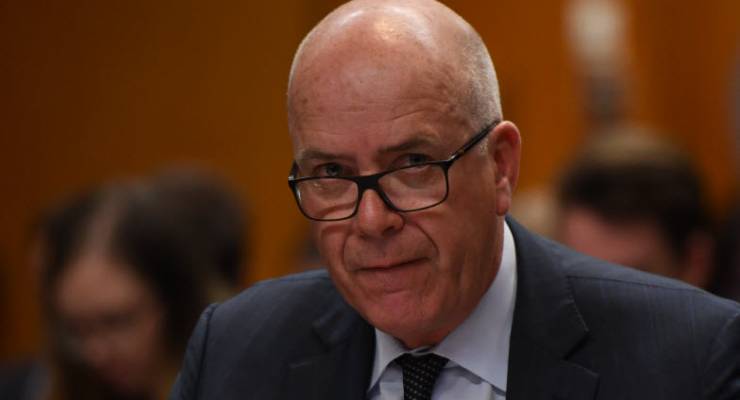
Fairfax CEO Greg Hywood has defended his bonuses and salary while cutting journalists’ jobs at a Senate inquiry into public interest journalism this morning.
Hywood said the figure of $7 million remuneration for him this year, which has been reported, was media speculation. As the senators tried to get to the bottom of the true figure, Hywood repeatedly said he was paid the market rate.
“Frankly, I thought we were here to talk about the future of journalism and I’ve made the point too that if Fairfax like every other media company is to do what it needs to do, all people in the organisation should be paid market rates,” Hywood said.
When questioned further on his total remuneration for last year, he repeated: “I don’t think that’s appropriate. This is an inquiry about the future of journalism, not remuneration for executives of ASX listed companies.”
He said he was also entitled to long-term and short-term incentives, but had not received any short-term incentives in recent years because they were tied to the publishing arm of the company.
Fairfax announced it would cut 125 editorial positions from its metropolitan newsrooms in cost-saving measures earlier this month, prompting a seven-day strike. Hywood said that decision was made in an attempt to build a “modern metro media group that will go into the future”.
Hywood said he did not support government handouts to Fairfax or other media companies.
“What we don’t want is handouts, because that creates obligation,” he said. “I think anything through the tax system where there’s no direct obligation is something you could explore … We’ve seen the ABC threatened with reduced funding as it’s annoyed various governments over the years.”
Hywood said he could not talk about the reported TPG bid on Fairfax as it was currently in front of the board. TPG did not respond to the committee’s request to appear, and committee chair Senator Sam Dastyari indicated the committee could exercise its powers to summons the private equity firm to appear.
He said changes to media ownership laws, as the government has indicated it will do, would help Fairfax and other media organisations to scale up and be sustainable.
“If the laws change, the media companies in this country can have conversations about the right mix of assets for media companies, and if that leads to some consolidation of media assets, I don’t know, but it would mean we could have that conversation … For every day that goes on before the legislation’s changed, Google and Facebook have an advantage. I certainly believe, and we’ve argued consistently for the two out of three rule to change so we can effectively compete.”
Hywood said the ABC should not be competing with the commercial news organisations by paying for Google ads for its content. He said that if the ABC were to continue publishing articles on its website, but not pay to bump its articles up on search engines, it would be meeting its charter obligations while giving commercial outfits a better go at receiving the online hits.
“We’re not anti-ABC … it’s just aspects of the new world of media where we have to be careful that the decisions that government institutions make don’t impact on the commercial environment that we all value … To me the issue is if we want the sort of diversity that everyone wants in terms of as many players as possible, the commercial organisations need to be as healthy as possible.”
Hywood cited the changing media landscape as a global issue media companies are grappling with. He said Fairfax now makes about 55% of its revenue from advertising, and 45% from subscriptions, compared to 85% from advertising in “the good old days”.
The boss of the journalists’ union, the Media, Entertainment and Arts Alliance (MEAA), Paul Murphy told the inquiry earlier that Hywood had not met with the union or journalists about the latest round of cuts, and had not done for a number of years during previous rounds of cuts.
Murphy said more than 2500 editorial jobs had been cut from media organisations in Australia since 2011, which does not include roles that have not been filled when staff have left.








the ceo’s remuneration is not relevant if the company has to change to become financially viable so be it .no sympathy for the media from me or anyone else I know.
You can have sympathy for those who have lost their jobs without being sympathetic to the plight of the industry. And of course executive remuneration is relevant when the screws are being tightened everywhere else.